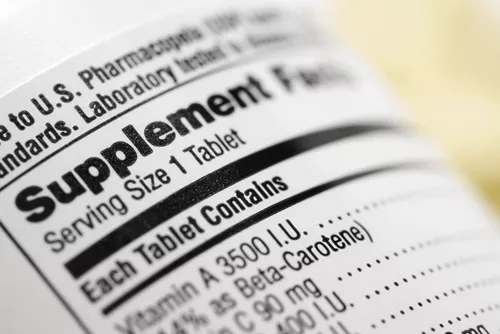
Maintaining a Healthy Supply Chain in the Vitamin and Supplement Industry
Recent news indicates the vitamin and supplement industry may come under stricter government oversight related to labeling and inventory management in the near future. As nutrient products grow more popular with a health-conscious public, problems with the industry’s supply chain begin to present themselves.
The New Haven Register reported the U.S. Food and Drug Administration found at least two instances per week of tainted vitamins or supplements sold to the public from 2007 to 2015. Common problems included products containing untested ingredients, controlled substances or foreign contaminants introduced during manufacturing or distribution. Improper production, packaging, shipping and storage led to numerous reported health issues and customer complaints.
Many experts credit the frequency of contaminants found in these products to the lack of regulation in the vitamin and supplement industry. In light of the new FDA findings, legislators plan to introduce the Dietary Supplement Labeling Act, which would require companies to clearly list materials used during production and give the FDA more power to analyze safety and health benefits.
Manufacturing and Supply Chain Visibility
Government officials and consumer advocate groups feel the public suffers from a lack of information when it comes to nutrients and vitamins, according to Newsweek. While the majority of companies selling health products offer merchandise that is safe and beneficial when used properly, a few organizations aren’t upfront about the ingredients in their products.
Children’s vitamins may contain unhealthy ingredients to give them a sweet taste. The FDA discovered some supplements on store shelves contain more minerals than is safe for regular consumption. Consumers need to know which ingredients go into the production of the items they ingest.
Shoppers must also be wary of where the merchandise comes from. Many finished products or ingredients for U.S manufacturing come from overseas. Health materials produced in countries with less-strict quality guidelines may pose a hazard, especially from suppliers that don’t follow shipping best practices.
Complete visibility of the supply chain is important for any consumable product to ensure bacteria or other dangerous foreign substances don’t taint merchandise. Consumable health products have special shipping and storage concerns as they are perishable. Demand Media said consumable vitamins will lose their potency after a certain period of time. To preserve quality, supplements should be kept in a cool, dark container. Some items need refrigeration and to avoid humidity.
Modern Solutions for Increased Scrutiny
Health product companies that wish to monitor and share information from their manufacturing processes and supply chain turn to ERP systems like Oracle’s JD Edwards.
Adding on a mobile data collection solution to JD Edwards allows manufacturers to report production processes and oversee daily operations. Information captured during product creation ensures packaging can detail the exact materials used to manufacture the merchandise. JDE users can trace problems through consistent reporting as soon as a foreign substance presents itself.
An RFgen customer case study detailed how a nutrient, supplement and vitamin distributor, Life Extension, utilized RFgen Mobile Foundations for JD Edwards EnterpriseOne to coordinate information from suppliers’ warehouse management and deliveries. Life Extension integrated JDE with barcode data collection devices to improve the speed, accuracy and traceability of its supply chain.
Warehouse workers used JDE-equipped automated data collection devices to check orders against customer demands to create proper labels and move goods out in a timely fashion. Order traceability allowed the company to see when, where and how products were delivered to the public.
As regulations tighten, vitamin and supplement companies need efficient solutions for supply chain visibility so they can share details with regulators. Consumers should seek out businesses that offer full transparency of their products and operations.
The Food Traceability Survival Guide
Gain practical advice to improve traceability systems and processes and help you meet the compliance challenge.






